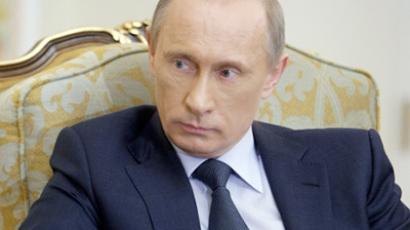Ratings role misunderstood

With the role of global ratings agencies having been under fire since the global financial crisis of 2008, and with questions over the ratings accorded to Russia and Russian companies Business RT spoke with Richard Hainsworth, CEO at RusRating.
RT: Do you think that the role of ratings agencies is well understood?RH: “No, I think that the role of rating agencies is poorly understood. Rating agencies increase the transparency of the market, because they give independent opinion about the risk an investor could bear. However, in some respect there has been an over reliance on rating agency opinions, because instead of taking them just as an opinion investors have tended to take them as statements of fact. In other words, if a rating agency says it assigns the rating AA, for example, to some company this is taken as a fact that the company has this rate of risk. While in reality rating agencies just express opinions about risk. Therefore, when you have an opinion, you should always have a second opinion. Investors have not been getting a second or a third opinion. Even when it comes to making their own opinion they don’t make judgments based on their own beliefs. So, I think, that the role of rating agencies has been misunderstood.”RT: Do you think that much of the criticism of ratings agencies in recent years has been ill informed?RH: “No, I think, the rating agencies are, in fact, undercriticised – they deserve much more criticism. And what is coming out today is in reality a reflection of what should have been voiced by rating agencies long time ago.”RT: Do you believe that the large global ratings agencies rate corporate Russia, and the Russian state/sovereign effectively?
RH: "No, I don’t. And I believe they should have a much greater spread of opinion about corporates in the world. I believe the position of local agencies and the opinion they produce should be incorporated into international investment. On the one hand, the risk that local agencies take up is very large, but, I think, that the large rating agencies in America apply a world view, that’s inappropriate for the Russian economy. I think that they misunderstand some of the risks and they misinterpret some of the news that comes out about Russian companies. Sometimes they react to the news that is in the press which most Russians take as quite ordinary and not worth commenting on and sometimes they don’t react enough to small changes Russian economists believe are very important. So, they misinterpret the news signals they get. The problem isn’t just with American analysts, the problem is that the opinion of Russian analysts working in this country for the big agencies isn’t taken fully into account. The reason for this is that for a Russian analyst to express his opinion it’s necessary for themto be able to communicate the interpretation that they have, and this’s very difficult if the world view of a different analyst doesn’t accept the types of interpretation that they’ve been given.”RT: Are there significant differences in the approaches between Russian specialist ratings agencies and the global majors in how they approach Russia?RH: “Russian rating agencies certainly have less experience. RusRating, for example, has been operating in the market for just over 10 years, which compares to over a hundred years of the American agencies. However, the analysts who work for S&P and Moody’s aren’t 100 years old – they’ve also been involved in rating for just 15-20 years. And certainly they haven’t been working for this amount of time in Russia, whereas we were born and raised here, I’ve been here in Russia for 30 years. So, it’s a different level of experience of Russian reality, And this experience is necessary because you have to judge how changes in the world, in the world of politics will affect the profile of Russian companies. So, sometimes Russian analysts are more critical of Russian companies than foreign analysts. But sometimes foreign analysts don’t understand the changes that have occurred. Sometimes foreign analysts are too critical of the things that affect Russian companies because they are trying to interpret a Russian company as if it was an American one, based in Russia. And it just doesn’t work. ”RT: How can Russian specialist agencies get greater prominence?What factors limit their market position?RH: “First of all, Russia doesn’t have obligatory ratings of Russia’s best obligations. This is a major limitation for the development of Russia’s rating agencies, because such companies as Gazprom or Sberbank or even some bigger banks don’t need to have ratings to place their debt instruments on the local market. In countries like China, India and Brazil a rating is required either by law or by tradition and it’s impossible to place a debt obligation in the local market without a rating . This has an effect on rating agencies because it generates a reliable revenue. Russian agencies have to rely on a much lower level of revenue than Chinese or Indian ones, and this is reflected in the size of the rating agency. India and China have rating agencies that are around 100 times bigger than Russian ones, which has an enormous effect on our ability to hire good analysts, to become prominent internationally, etc. I would say that the biggest problem for the Russian rating agencies is the structure of the Russian financial market, which is very underdeveloped. One can argue that the Russian financial market is underdeveloped because there’s no obligatory rating. And when there’s obligatory ratings, there’s more transparency, and when there’s more transparency, more investors are willing to invest in the market. A vicious circle of a kind.”RT: Do you believe there are systemic biases in the ratings of the larger global ratings agencies which favour developed economies?RH: “Yes, absolutely. I think, it’s unquestionably biased. The example I use to demonstrate this is structured mortgage backed assets. Some structured bonds were issued on the international market by Russian companies, with the highest level of rating being A-. In America the highest level for structured mortgage bonds, even for the worst possible borrowers, was AAA. During the crisis those structured bonds, known as sub prime mortgage bonds, became toxic assets causing thousands of defaults. In Russia with the top level tranches of the mortgage bonds, even rated much lower than in America, there has not been one default. And investors know that, they value the mortgage backed assets issued in Russia and don’t value the mortgage backed assets issued in the United States. And that’s wholly because the rating agencies made an incorrect rating of Russian bonds, with a bias favouring the more developed countries and against the developing ones.”
James Blake, Anastasia Kostomarova, RT














